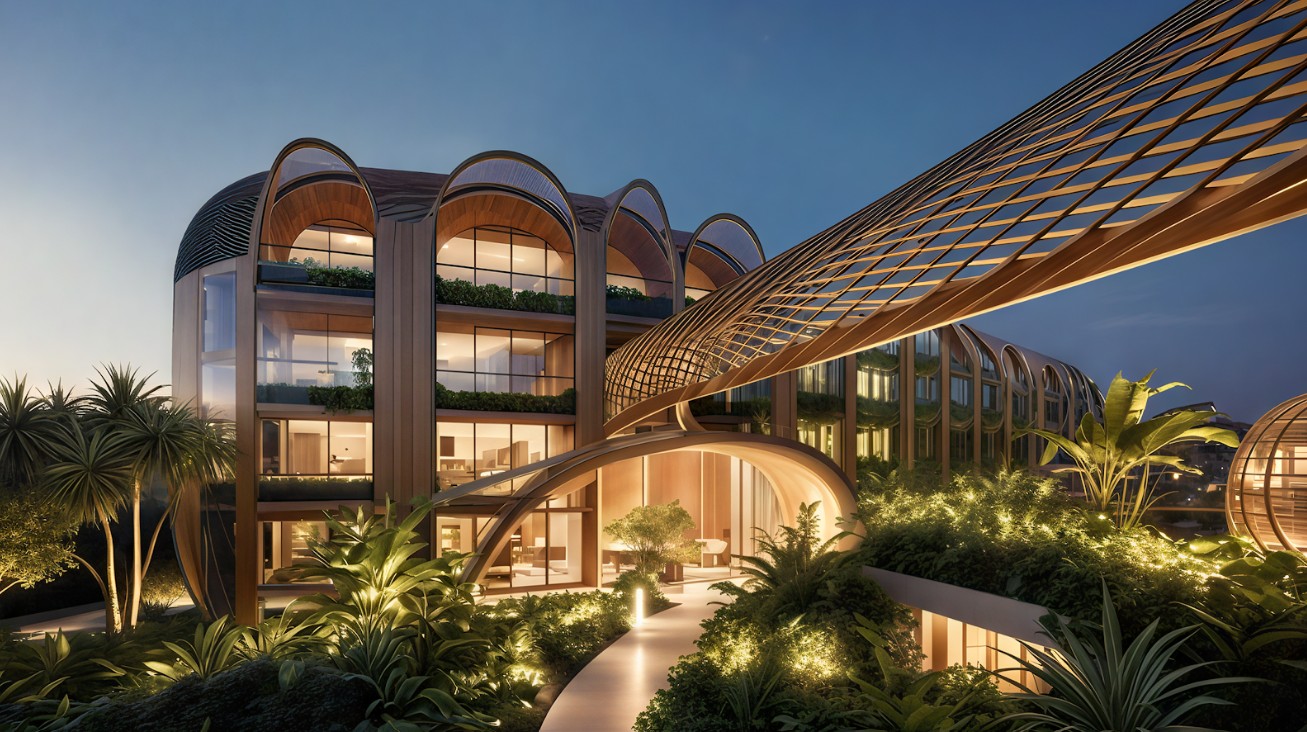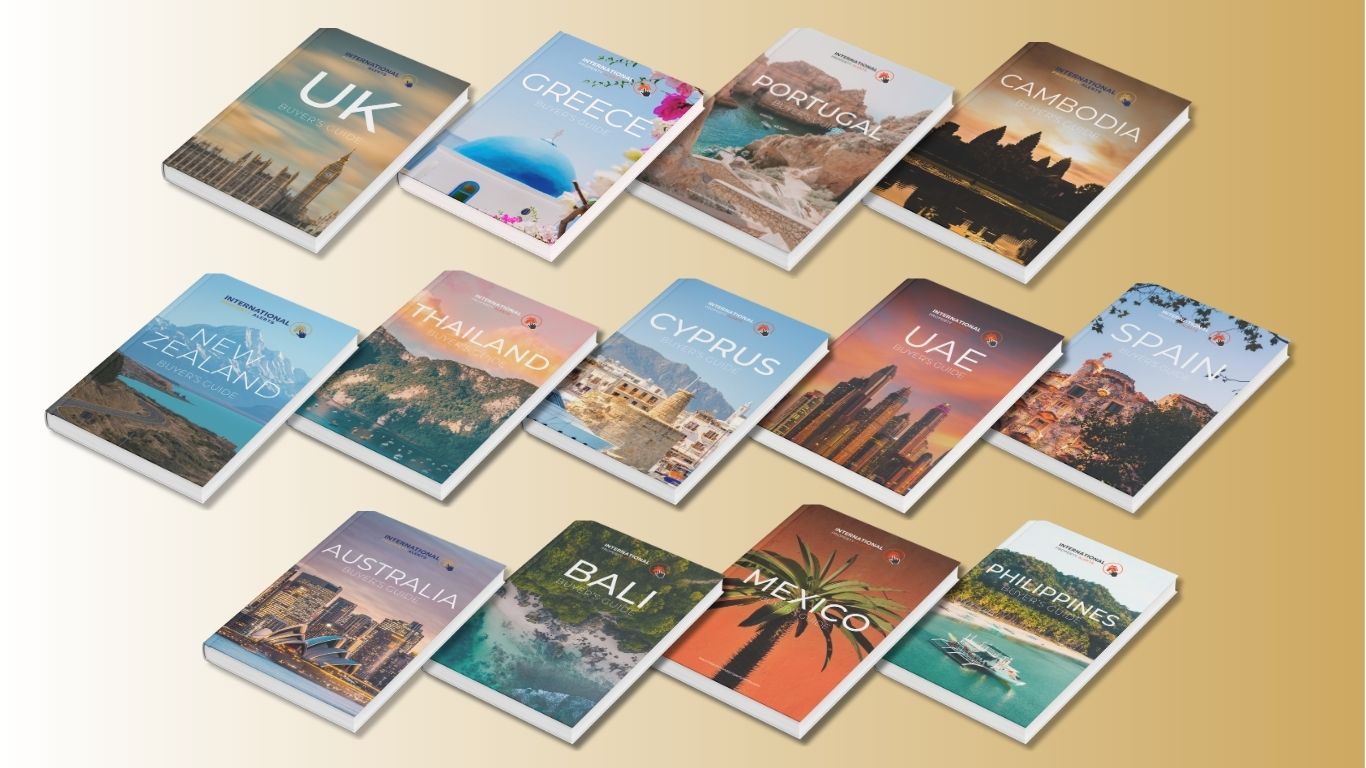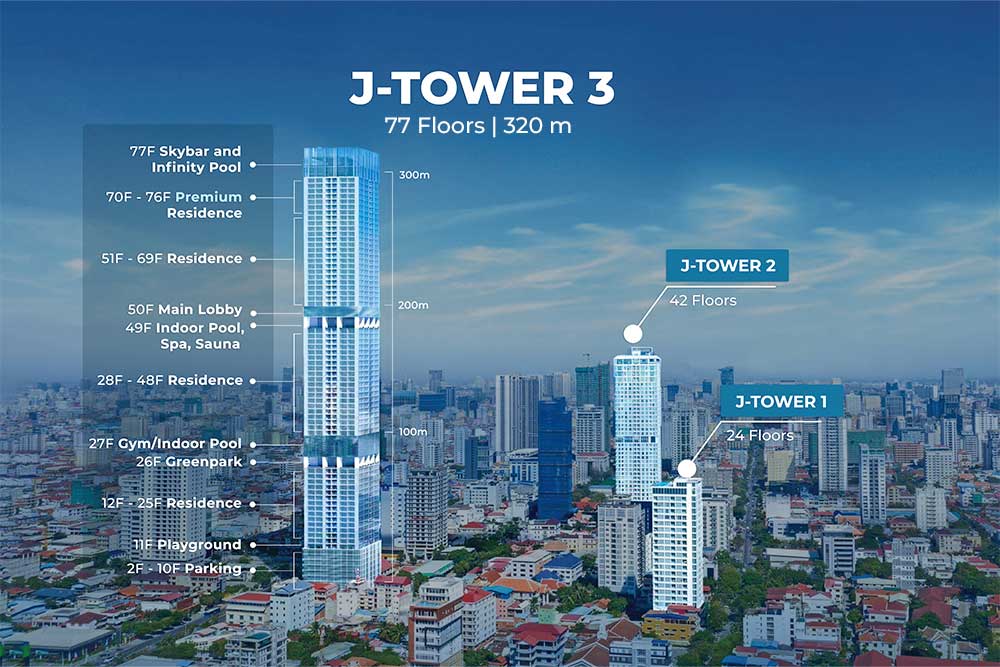Green Greece: The Towns and Islands Pioneering a Sustainable Revolution
- International Property Alerts
- September 19, 2025
When I arrived in Greece over a decade ago, the environmental landscape was disheartening. Plastic bags were ubiquitous, single-use bottles overflowed bins, and recycling was more aspiration than reality. Composting? Virtually unheard of. Yet, in 2025, Greece is undergoing a remarkable transformation, emerging as a leader in sustainable living. From zero-waste islands to wind-powered villages, the country is targeting a 58% reduction in greenhouse gas emissions by 2030 and full carbon neutrality by 2050, as outlined in its National Energy and Climate Plan (NECP). This eco-revolution, driven by local innovation and EU support, blends Greece’s ancient charm with a forward-thinking ethos. For expats, retirees, or travelers seeking a greener lifestyle, Greece’s towns and islands offer inspiring models. Those interested in property opportunities can also explore an international real estate listing to see how sustainability and investment potential connect. Here’s a deep dive into five standout locations, Tilos, Agios Efstratios, Anavra, Trikala, and Paros, shaping Greece’s sustainable future, plus a FAQ to guide your eco-conscious journey.
Tilos: The World’s First Zero-Waste Island

Nestled between Kos and Rhodes in the Dodecanese, Tilos (pop. 745) made history in 2023 as the world’s first zero-waste island, earning the Zero Waste Cities Certification from Mission Zero Academy., With just 63 square miles, this ecological park and nature reserve, home to rare Bonelli’s eagles and 400 plant species, faced a waste crisis before 2021, with 87% of its 770 kg per capita annual waste sent to landfills, exacerbated by 13,000 summer tourists.,
The “Just Go Zero Tilos” initiative, launched with Polygreen in June 2021, revolutionized waste management. Public bins were removed, and households received kits for sorting recyclables (paper, plastic, metal), organic waste (food scraps), and non-recyclables (e.g., soiled paper). A smartphone app tracks recycling via QR-coded bags, achieving a 90% recycling and composting rate, one of the world’s highest., The landfill closed, replaced by the Centre for Circular Innovation, which composts, recycles, and transforms non-recyclables into fuel or art mommunity engagement was key. Educational campaigns and incentives fostered pride, with Materials.
Cayor Maria Kamma calling it a “green revolution beyond comparison.” Tourists participate via hotel sorting systems and the Zero Point Information Centre in Livadia, boosting eco-tourism and jobs in sustainable agriculture and energy. Tilos proves small communities can lead globally, inspiring islands like Lipsi to follow suit. This shift has also sparked interest from expats and investors exploring options for buying property in Greece, as sustainable towns like Tilos demonstrate how green living can create long-term value.
Agios Efstratios: Greece’s Renewable Energy Pioneer

Agios Efstratios (Ai Stratis), a remote Aegean island with 250 residents, became Greece’s first fully renewable-powered island in 2024, running for hours on solar, wind, and battery storage under the “Ai Stratis – Green Island” initiative. Located between Lesbos and Lemnos, this 17-square-mile island, once reliant on diesel generators, was an ideal testbed for the EU-funded project started in 2010.
Solar panels, wind turbines, and sodium-nickel batteries now provide stable power and free district heating, slashing emissions and costs. The island’s isolation, no mainland grid connection, spurred innovation, with real-time energy monitoring ensuring reliability even during tourist season (1,000 visitors). This model, part of the GR-eco Islands Initiative, is inspiring Astypalaia and Chalki to adopt renewables and e-mobility, like electric scooters., Ai Stratis shows how remote communities can achieve energy independence, enhancing quality of life and setting a precedent for Greece’s 2050 carbon-neutral goal.
Anavra: The Wind-Powered Mountain Revival

In Central Greece’s Mount Othrys, Anavra (pop. 700) transformed from a struggling village into a sustainability beacon. In the 1990s, unpaved roads, roaming livestock, and no school signaled decline. Enter Dimitris Tsoukalas, a UK-educated local who, in the early 2000s, leveraged EU funds to install 20 wind turbines.
These turbines generate surplus electricity, sold to the national grid, funding paved roads, a school, a clinic, and public spaces. Unemployment is near zero, and Anavra boasts one of Greece’s highest per capita incomes. Biogas plants convert livestock waste into energy, creating a circular economy that minimizes pollution. Organic farming and eco-tourism, like hiking trails with views of wild herbs, draw visitors. Anavra’s story, featured in EU sustainability reports, proves rural communities can thrive through green innovation, offering a model for Greece’s mainland and adding to the many unique facts about Greece.
Trikala: Greece’s Cycling and Smart City Hub

Trikala, a city of 80,000 in Thessaly, 205 miles north of Athens, is Greece’s biking capital, dubbed the “Amsterdam of Greece.” Its flat terrain and Litheos River setting support three dedicated bike paths and a public bike-sharing system, with 30,000 bicycles (one per 2.5 residents). Cycling is woven into daily life, reducing car use and emissions.
Trikala’s green efforts extend further: green roofs, solar streetlights, and energy-efficient buildings cut energy consumption. In 2015, it launched Europe’s first driverless bus pilot, still operational in 2025, earning global acclaim at smart-city conferences. With affordable living ($1,500-$2,500/month for couples), modern amenities, and a relaxed pace, Trikala blends urban innovation with eco-conscious living, ideal for families and retirees seeking sustainability without sacrificing convenience.
Paros: Leading the Plastic-Free Charge

Paros, a Cycladic gem known for turquoise waters and windsurfing, is on track to become the Mediterranean’s first plastic-free island through the 2019 Clean Blue Paros initiative with Common Seas., With 12,000 residents swelling to 100,000 in summer, Paros tackled its 4.5 million annual plastic bottles and other single-use plastics.
The initiative banned plastic straws and bags, promoted biodegradable alternatives, and revamped waste systems. Over 100 businesses adopted reusable products, and recycling rates rose to 60%, with plans to reach Tilos’s 90%. Public awareness campaigns, like beach cleanups, engage locals and tourists, while Paros Park’s trails and lighthouse hikes highlight its natural beauty. Visitors often check the weather in Greece before planning eco-activities, and though full participation remains a challenge, Paros’s model is shaping Greece’s national plastic reduction strategy, inspiring islands like Folegandros.
Greece’s Broader Green Shift
Greece’s eco-revolution is decentralized, driven by local governments and EU partnerships like the GR-eco Islands Initiative, which promotes renewables, e-mobility, and circular economies across islands., The 2022 National Climate Law sets a 2050 climate neutrality target, with measures like forest restoration and biochar to enhance carbon sinks. Projects like Project IFESTOS, capturing 1.9 MtCO2/year from cement plants, support carbon removal.
Challenges persist: inconsistent waste management during tourist seasons, lagging rural infrastructure, and coordination gaps. Yet, Tilos’s zero-waste success, Ai Stratis’s renewable energy, Anavra’s rural revival, Trikala’s smart urban model, and Paros’s plastic-free push show progress. Scaling these requires investment and community buy-in, but Greece’s 2025 voluntary carbon market and €400 million Green Fund signal commitment.
A New Green Identity for Greece
Greece’s transformation blends its ancient heritage, think Ġgantija temples or Paros’s marble villages, with a sustainable future. For expats, Tilos’s eco-tourism jobs, Trikala’s bike-friendly streets, or Anavra’s rural charm offer diverse lifestyles. Retirees enjoy affordable living ($1,200-$2,500/month) and Schengen access, while nomads thrive in Paros’s coworking spaces. Greece’s eco-revolution proves that small communities can lead globally, offering a blueprint for a greener world. Visit Tilos’s trails, cycle Trikala’s paths, or savor Paros’s beaches to witness a nation redefining itself as a sustainability leader. For inquiries about property opportunities, feel free to contact us.
FAQ: Living Sustainably in Greece’s Eco-Towns and Islands
1. How much does it cost to live in Greece’s eco-friendly towns or islands?
Costs vary. In Tilos or Agios Efstratios, a couple needs $1,200-$2,000/month, including rent ($400-$800 for a one-bedroom). Trikala or Paros ranges from $1,500-$2,500, with rents at $500-$1,000. Groceries ($150-$250) and local dining ($2-$10/meal) are affordable, especially in markets.
2. Are these eco-friendly areas safe for expats?
Yes, Tilos, Paros, Trikala, and Anavra have low crime rates. Petty theft is rare, even in tourist-heavy Paros. Local police are approachable, and community events like festas foster safety and connection.
3. Do I need to speak Greek to live in these areas?
English is common in tourist areas like Paros or Tilos; basic Greek (yia sou for hello) via apps or classes ($5-$15/hour) builds local ties, especially in rural Anavra or Ai Stratis.
4. What’s the visa process for non-EU citizens?
A 90-day Schengen tourist visa is visa-free. Long-term residency requires a work visa ($2,000/month income) or retirement visa ($2,000/month), taking 6-12 months. Greece’s Golden Visa ($270,000 property investment) grants residency in 3-6 months. Agents ($1,000) assist.
5. How’s the healthcare system in these areas?
Public healthcare is free for residents; expats pay $200/year. Private clinics in Trikala or Paros charge $30-$80/visit. Tilos and Ai Stratis have basic clinics, with hospitals in Rhodes or Lesbos ($5 ferry). Private insurance ($40/month) covers specialists.
6. Can foreigners buy or rent property in these eco-towns?
Yes, foreigners can rent ($400-$1,000/month) or buy ($100,000-$300,000 for homes). Paros and Trikala have modern condos; Tilos and Anavra offer rustic houses. Use agents for purchases; taxes are $500-$1,500/year.
7. How’s the infrastructure and connectivity?
Trikala has robust buses ($1-$2) and bike paths; Paros and Tilos offer ferries ($5-$10) and basic buses. Internet (50-100 Mbps, $20-$30/month) supports remote work. Rhodes (for Tilos) or Athens (for Trikala) airports are 1-3 hours away.
8. How do I connect with eco-conscious communities?
Join Paros’s beach cleanups, Tilos’s Zero Point Centre workshops, or Trikala’s cycling clubs via Facebook (“Greece Expats,” “Paros Sustainability”). Festas or markets in Anavra foster bonds with locals, who welcome eco-minded newcomers.
About International Property Alerts
International Property Alerts is a premier global platform connecting real estate investors with handpicked opportunities in emerging and lifestyle-driven markets. Through curated listings, expert guidance, and market insights, we help buyers make confident property decisions worldwide.
Media Contact:

Phone: +4420 3627 0106
📱 WhatsApp: +63927 073 9530
Email: office@internationalpropertyalerts.com
Discover Prime Global Opportunities

Elle Resort & Beach Club – Your Prime Beachfront Investment
Elle Resort & Beach Club offers a rare chance to own property in one of the most desirable coastal locations. With limited units, strong capital growth potential, and unmatched resort facilities, this is your opportunity to secure a beachfront lifestyle with long-term value.

Smarter Property Investments Start Here
Thinking about buying property abroad? Don’t make the move without the right knowledge. Our Free Buyers Guide gives you essential insights on legal steps, taxes, financing, and the best markets worldwide. Trusted by international buyers and investors.

Your Perfect Home Awaits at Sudara Residences
Wake up to bright, spacious living with stunning views and modern comforts. Whether for family living, retirement, or a stylish retreat, Sudara Residences makes your dream home a reality

Own a Piece of Cambodia’s Thriving Property Market
Discover curated property listings with IPS—residential, commercial, villas, land—and get expert guidance through every step.
BONUS: FREE Cambodia Buyer’s Guide

Grow Your Business - Advertise in a Prime Spot
High visibility. Targeted audience. Maximum exposure. Rent this space and let your brand shine.

Got Properties to Sell?
Get your properties in front of high-intent investors. Showcase your listings to buyers worldwide.

Exchange Without Borders
From pounds to pesos, yen to dollars. ⚡ Quick. Easy. Secure.

